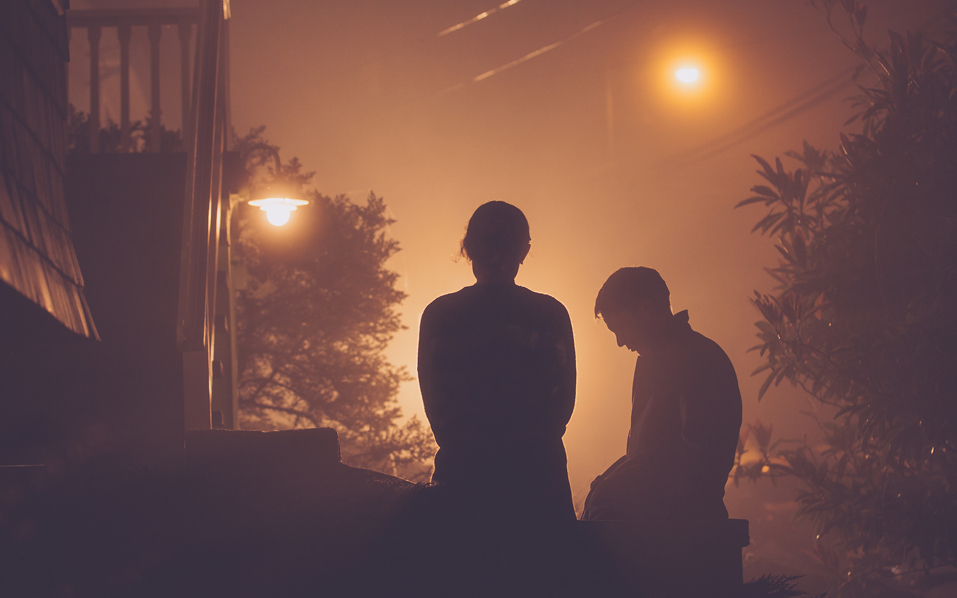“What do you think is going to happen first?” Avery (David Call) asks Calib (Jack Davenport), the producer of his latest film midway through Zachary Shedd’s “Americana,” looking on as his sister Kate (Kelli Garner) appears on the screen in front of him. “Finishing the film or us putting her into the ground?”
In “Americana,” it isn’t out of the realm of possibility that both need to happen simultaneously for Avery to ever have a chance of moving on from the traumatic experience of losing her. In his tantalizing feature debut, Shedd creates quite the conundrum for the film editor who is asked to reconstruct his sister’s final film at the same time he’s making sense of his life after her death just after turning 30, a tragedy he can’t help but feel partially responsible for. However, as “Americana” unfolds, his culpability comes into question, part of the ambiguity that gives the thriller the slow burn of a dying fire, continually throwing off sparks of intrigue as Avery tries to come to terms with the fallout from Kate’s demise.

There’s an beguiling mix of new and old in “Americana” that lifts it out of any fixed time, much as its main character finds himself out of the loop. Set in San Francisco surely to evoke the same sense of paranoia that such films as “The Conversation” and “Zodiac” have mined to great effect, the film is lensed with great care by cinematographer Justin Charles Foster, who juxtaposes compositions that feel contemporary in how they isolate characters with classically rich colors and pools of light. The casting Call and Garner, two notably debonair leads, is similarly effective, both believable as old pros in the movie business with promising careers, yet operating at a remove from everyone else. Likewise, Shedd would seem to be setting himself apart with the rhythm and the plot mechanics of “Americana,” which rewards moments of obfuscation with reveals that elucidate like the lifting of the Bay Area fog. Although the film is unafraid to go to some very dark places, “Americana” augurs a very bright talent.
“Americana” does not yet have U.S. distribution. It will play the Seattle Film Festival once more on June 10th at 4 pm at the SIFF Cinema Uptown and will make its New York premiere at the Lower East Side Film Festival on June 14th at 9 pm at the Sunshine Cinema.




